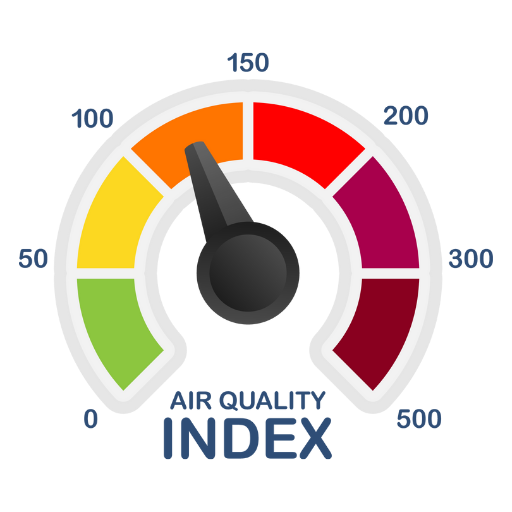Are you breathing in toxic air without even realizing it? The Air Quality Index (AQI) is a critical measure of the air we breathe, yet many of us are unaware of its impact on our health and well-being. In this eye-opening article, we delve into 10 shocking facts about AQI that will change the way you think about the air around you. From invisible pollutants to their alarming effects on our bodies, these revelations will make you question what you thought you knew about air quality.
Did you know that indoor air can be more polluted than outdoor air? Or that certain cities consistently rank as some of the most polluted in the world? Whether you live in a bustling metropolis or a tranquil countryside, understanding these facts about AQI is crucial for protecting yourself and your loved ones from the hidden dangers lurking in the very air we breathe. Get ready to uncover the surprising truths behind AQI and take control of your respiratory health like never before!
- Did you know that according to the World Health Organization, 92% of the world’s population breathes air with high levels of pollutants? This shocking fact highlights the pervasive nature of poor air quality and its impact on global health. From industrial emissions to vehicle exhaust, the sources of air pollution are varied and widespread, necessitating a greater understanding of how it affects us.
- The AQI is not just about outdoor air; indoor air quality can also have a significant impact on health. Indoor air can be up to five times more polluted than outdoor air due to factors such as cooking fumes, cleaning products, and inadequate ventilation. This underscores the importance of considering both indoor and outdoor factors when evaluating AQI and taking measures to protect ourselves.
- Air quality problems are not limited to heavily industrialized cities; rural areas can also experience poor air quality due to agricultural practices and natural events like wildfires. This challenges the conventional perception of pollution being an urban problem and emphasizes the need for comprehensive solutions that address air quality across all environments.
- Air pollution can have a significant impact on mental health. While we often hear about the physical effects of poor air quality, such as respiratory problems and cardiovascular issues, its impact on mental health is often overlooked. Studies have shown a correlation between high levels of air pollution and an increased risk of depression, anxiety, and cognitive decline.
- The AQI can vary drastically within a relatively small geographical area. It’s important to note that the AQI can fluctuate significantly even within a single city or neighbourhood due to various factors such as traffic congestion, industrial activities, and construction sites. This highlights the need for individuals to monitor local air quality regularly rather than relying solely on general city-wide ratings.
- The Air Quality Index (AQI) may seem abstract, but its impact on health is significant. Did you know that even short-term exposure to high AQI levels can trigger respiratory distress? For example, in highly polluted cities like Beijing, a spike in AQI often leads to school closures and outdoor event cancellations due to the severe health risks posed by toxic air particles.
- Another shocking fact about AQI is that it’s not just an environmental concern—it also profoundly affects our cognitive abilities. Studies have shown a direct correlation between increased AQI levels and decreased cognitive function, with symptoms ranging from difficulty concentrating to memory impairment. This disturbing link between air quality and mental performance underscores the urgent need for stricter pollution control measures and heightened public awareness campaigns.
- Furthermore, many people are unaware that poor air quality significantly impacts pregnancy outcomes. Research has found that exposure to high AQI during pregnancy can lead to preterm births and low birth weights, posing serious risks to both maternal and infant health. These revelations underscore the far-reaching consequences of neglecting air quality management and emphasize the pressing need for immediate action to mitigate these detrimental effects.
- Did you know that indoor air quality can be up to five times more polluted than outdoor air? That’s right – the air inside your home or office could be harbouring a host of harmful pollutants, including pet dander, dust mites, and volatile organic compounds from household cleaners. This surprising fact highlights the importance of not only monitoring outdoor air quality but also taking measures to improve indoor air quality for better health and well-being.
- Another shocking fact about AQI is that even short-term exposure to high levels of pollution can have serious health effects. For instance, studies have shown that spikes in air pollution can lead to an increase in hospital admissions for respiratory issues and exacerbate existing conditions such as asthma and allergies. This underlines the urgency of staying informed about current AQI levels and taking necessary precautions to minimize exposure, especially for vulnerable populations like children, the elderly, and individuals with pre-existing respiratory conditions.
In addition, it’s important to recognize that different pollutants contribute to overall AQI levels in varying ways. For example, while particulate matter (PM2.5) is a major concern due to its ability to penetrate deep into the lungs and bloodstream, ground-level ozone poses its own set of health risks, particularly during hot summer months when it tends to reach elevated concentrations. Understanding the specific impact of different pollutants on AQI provides valuable insight into potential health risks associated with varying levels of pollution.



